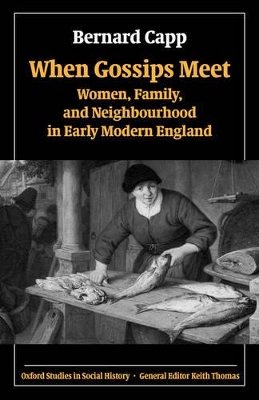Oxford Studies in Social History
1 total work
This book explores how women of the poorer and middling sorts in early modern England negoitated a patriarchal culture in which they were generally excluded, marginalized, or subordinated. It focuses on the networks of close friends ('gossips') which gave them a social identity beyond the narrowly domestic, providing both companionship and practical support in disputes with husbands and with neighbours of either sex. The book also examines the micropolitics of the
household, with its internal alliances and feuds, and women's agency in neighbourhood politics, exercised by shaping local public opinion, exerting pressure on parish officials, and through the role of informal female juries. If women did not openly challenge male supremacy, they could often play a
significant role in shaping their own lives and the life of the local community.
household, with its internal alliances and feuds, and women's agency in neighbourhood politics, exercised by shaping local public opinion, exerting pressure on parish officials, and through the role of informal female juries. If women did not openly challenge male supremacy, they could often play a
significant role in shaping their own lives and the life of the local community.
